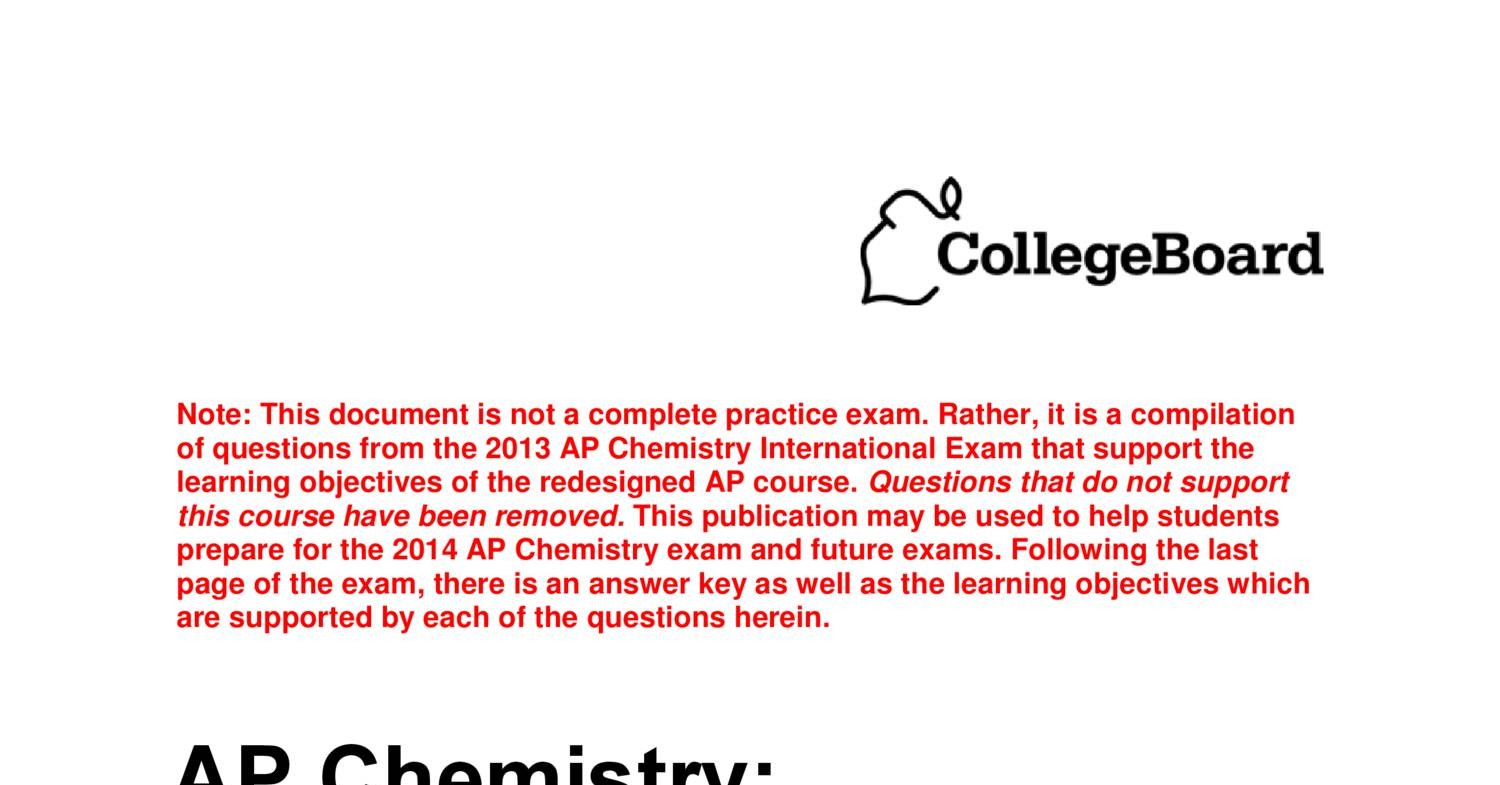

You have one known, and it sounds fair to middling, and an unknown (CC instructor). No evidence persuades like the real deal.įinally, you mention something I think you and your DS should really factor into the decision-making: teaching quality. College chemistry, even community college chemistry, is college. AP chemistry moves at a rapid pace similar to first year two semester college chemistry class. It is possible for a student to take AP Chemistry exam without enrolling in the AP Chemistry class. Typically, AP courses (at least in STEM, where I work) use college texts, but they're still paced slower than college courses. Only Chemistry students enrolled in the IB program may take the IB exams or receive IB credit.

AP chemistry is like college, but it is not college. USNA seeks evidence that HS students can do well in demanding, STEM-heavy curricula. 1, 2 Singlet oxygen, commonly abbreviated as 1 O 2, is the first excited electronic state of oxygen molecule, lying 22.4 kcal mol 1 in energy above the triplet ground state (3 g +). ) contribute to oxidation reactions in biological systems. While a good score on the AP exam may also result in credit, it often depends on a score of 4 or 5, which is not guaranteed. Reactive oxygen species such as singlet oxygen (1 O 2, 1 g), hydroxyl radical (OH.) and superoxide anion (O 2. Unless you're applying to a college with a broken admissions policy, like UCLA or other Univ of California schools, they'll just ignore your satII chem since it's obvious you know it. If for some reason he does not get into USNA, however, then the nod goes to the CC which will grant transferable college credit. I took the AP Chem, got a 5, and didn't do the SATII. (In other words, I do not see how one would be favored over the other.) Remember, the admissions board is not going to have the capability to look at his app and say, "Oh, that Bill Jones might've got an A in AP chem and a 4 on his exam, but I know for a fact he could've taken it at Podunk CC down the road. On this metric, even split: both will prepare him well to validate a semester, although not guaranteed of course.ĭoes your son's HS AP chem offer a wet lab? (Some do not, and fulfill AP requirements with virtual labs.) If AP chem does not include a wet lab, nod to the college chem in terms of preparation for USNA.Īlthough one of the BGOs should certainly chime in as well, as long as DS earns a good grade either course, AP chem or college chem, it strengthens his application. Whether your DS takes chem at the HS or college level, he will still have to validate one or both semesters of plebe chem at USNA because USNA does not accept transfer credit. Here are the possible consequences as I think about them. AP chemistry is high-school chemistry, but college chem is.well, college chem.


 0 kommentar(er)
0 kommentar(er)
